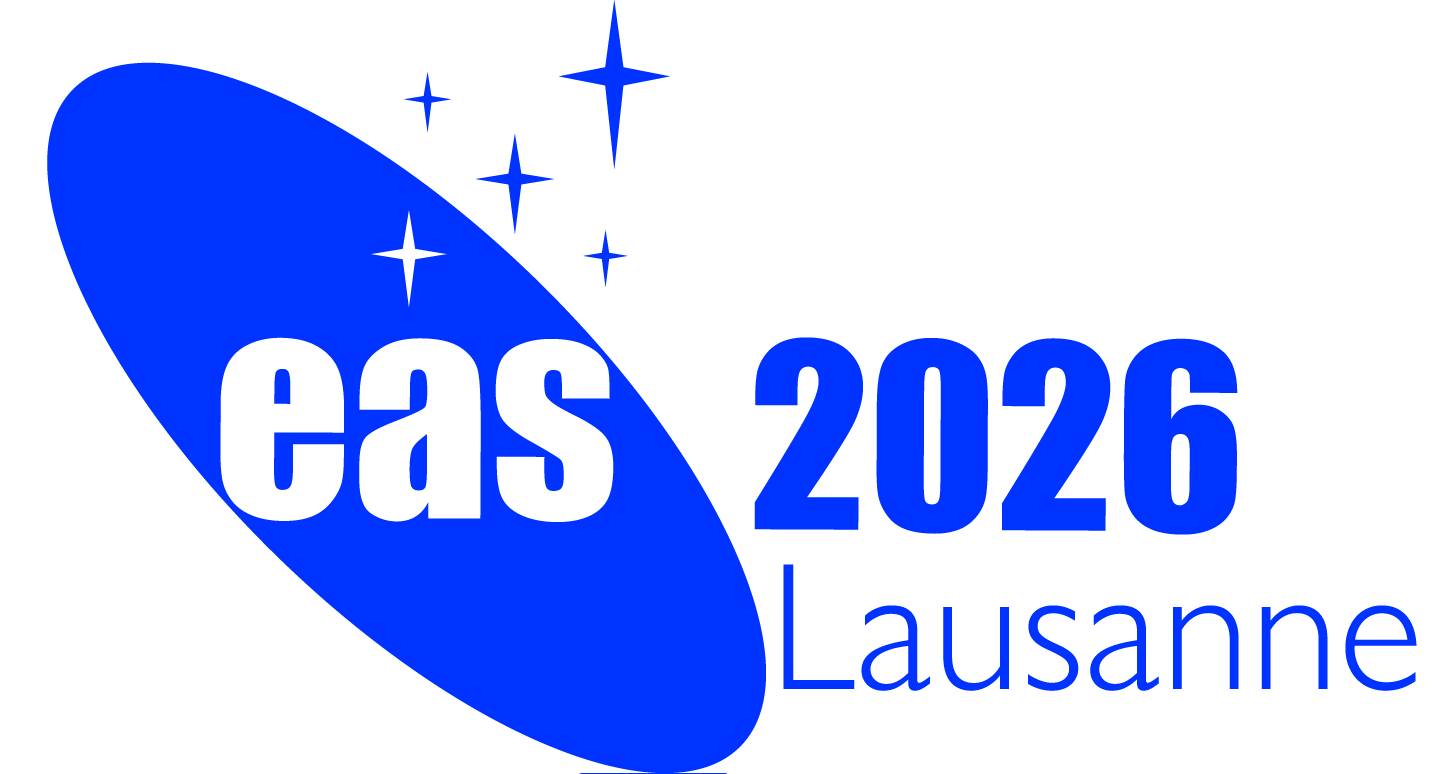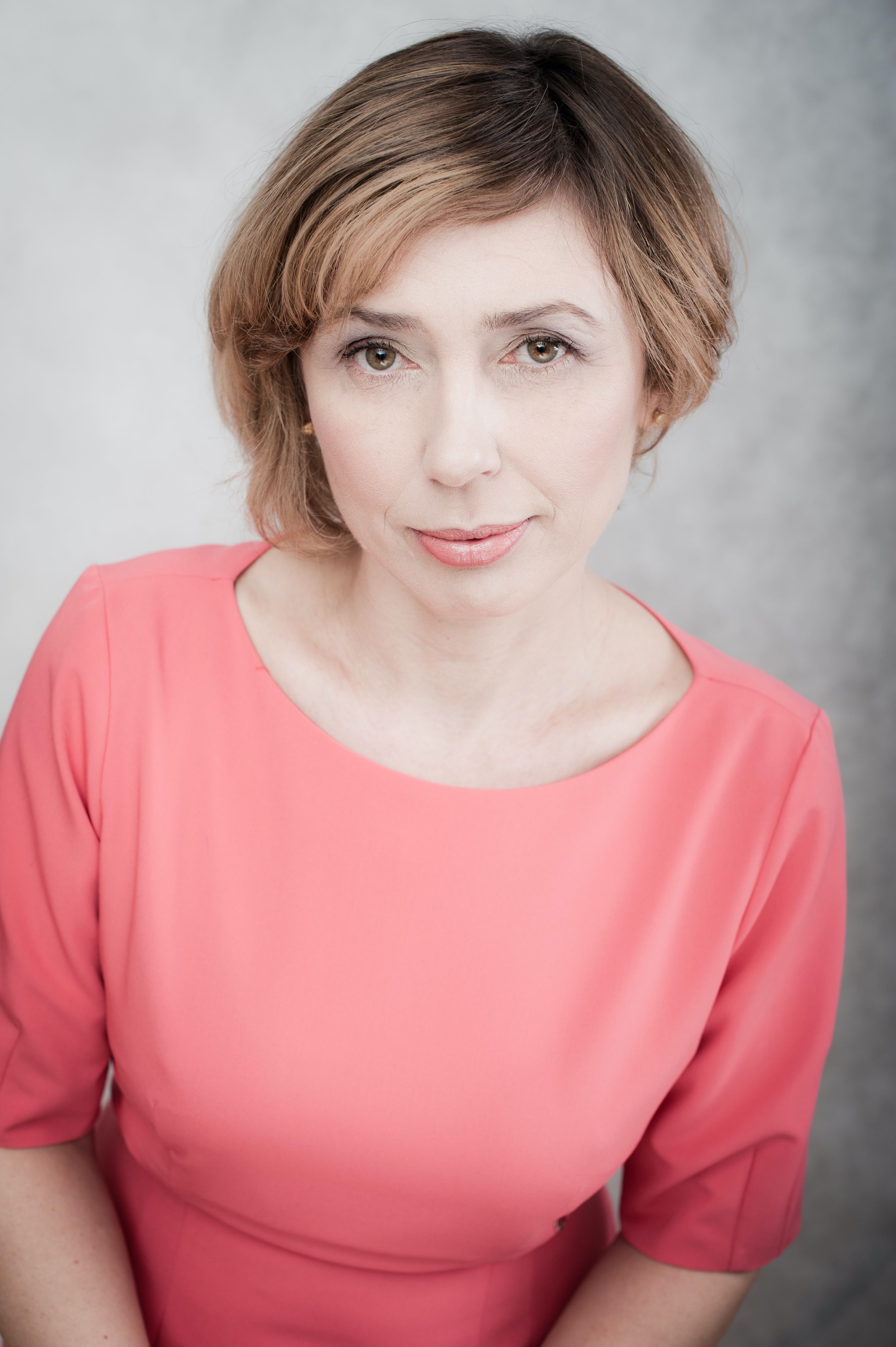
|
European Astronomical Society |

|
About EAS |
Activities
EAS Prizes/Fellows |
Service Centre |
As well as enjoying the longer days of Spring your Council has been busy in preparation for the meeting in Padova, Italy, and for the EAS Annual Meeting 2025 planned to be hosted by University College Cork in Ireland. At the annual meeting last year we celebrated ten years of the MERAC Prizes and heard the announcement of the George Lake Awards to promote outstanding innovation and non-commercial research in New Technologies, Instrumentation and Computing, in George's memory. There were a large number of very strong applications and the selection process was very competitive. Exceptionally, for this first ever George Lake Award, Fondation Merac has selected two projects rather than just one. The winners are:
▸ Read more
Dr. Emmanuel Hugot from Laboratoire d'Astrophysique de Marseille, France for the project "CASTLE-GT: the Calar Alto SchmidT-Lemaître Explorer Ground Telescope", and
Dr. Boon Kok Tan from Department of Physics (Astrophysics), University of Oxford, UK for the project "Planar Circuit-on-chip Technologies Enabling Large Spectroscopic Mapper for Sub-Millimetre Astronomy".
Hearty congratulations to the worthy winners and many thanks to all those who entered proposals for the award and produced such a highly ranked field.
Each year the EAS awards prizes to young scientists to recognise and support young astronomers. This year the MERAC Prizes have been awarded for Best Doctoral Thesis in three categories:
▸ Read more
Theoretical Astrophysics to Dr Lorenzo Gavassino for his thermodynamics-based formulation of relativistic viscous hydrodynamics for multi-messenger and gravitational astronomy. He is currently a postdoctoral scholar at the department of mathematics of Vanderbilt University, in Nashville, USA, and member of the Vanderbilt Initiative for Gravity, Waves, and Fluids (VandyGRAF).
Observational Astrophysics to Dr Julia Victoria Seidel for her work on climate and atmospheric circulation regimes of exoplanets from high-resolution spectroscopic observations. Since 2021, Dr Seidel has been a Research Fellow at the European Southern Observatory (ESO) based in Santiago and at Paranal Observatory in Chile.
New Technologies (Computational) to Dr Johannes Heyl for his work on machine learning-based techniques to understand astrochemical processes in the interstellar medium. Dr Heyl is now postdoctoral research associate at University College London (UCL).
They will all receive their prize and give a plenary lecture at the EAS 2024 meeting in Padova.
Outstanding science was also awarded in the case of senior scientists.
This year EAS committees selected the awardees for: Tycho Brahe Medal, Lodewijk Woltjer Lecture, and Fritz Zwicky Prize for Astrophysics & Cosmology. The winners are:
▸ Read more
The 2024 Tycho Brahe Medal is awarded to Prof. Francesco Pepe (University of
Geneva, Switzerland) for the development and exploitation of ultra-stable high resolution spectrographs which revolutionised the detection and characterisation of small-mass exoplanets.
The 2024 Lodewijk Woltjer Lecture is awarded to Prof. Roland Bacon (CRAL/CNRS/ENS de Lyon/Claude Bernard Lyon 1 University, France) for the development of integral field spectroscopy as a core technique in observational astrophysics and its application to a wide range of problems, in particular galaxy evolution.
The 2024 Fritz Zwicky Prize for Astrophysics & Cosmology is awarded to Dr Catherine Cesarsky (CEA Saclay, France) for outstanding contributions to the understanding of the evolution of galaxies via space infrared observations and for her leadership in shaping the observational infrastructure of contemporary astronomy.
The winners will receive their prizes and give plenary lectures at the EAS 2024 meeting in Padova.
The 2024 EAS Annual Meeting in Padova is approaching quickly. The organisers have received over 2350 abstracts, 16% more than for the EAS 2023 meeting in Krakow. The total number of abstracts includes 2050 contributed talks, 187 ePosters, 104 invited talks, 5 plenaries, and 4 prize-winner talks. The final program will be available at the
EAS2024 webpage as soon as it is finalised.
This year participants will be able to attend (a selection of) 15 Symposia, 41 Special Sessions, and 7 Lunch Sessions in a fully hybrid mode. Online participants will have access to all sessions (plenary, symposia, special and lunch sessions), live or recorded, on a virtual platform , as well as the ePosters platform, the EAS 2024 dedicated Slack space, etc. In addition, for the "online speaker" fee, virtual attendees will be able to give a talk remotely "live" for all sessions. Paid (low fee) childcare is organised for the limited number of participants.
▸ Read more
The EAS 2024 Hosting Committee is looking for volunteers to help with the local organisation of the event. If you are interested in volunteering, please submit your candidacy by completing the volunteer application form before April 14, 2024.
Alongside the symposia, special and lunch sessions, the scientific program includes invited plenary talks, among which are talks from this year's winners of the MERAC and EAS Prizes (see the separate items on the Prizes in this newsletter) and community reports from the largest European facilities. We would like to point out that due to the great interest among the members of the society, some special sessions have become a standard at the EAS Annual Meeting: Early Career Astronomers and their supporters, Diversity for the advancement of science, European Forum for Astronomical Communities, Scientific Writing and Publication for Astronomers, Under the same sky: engage the next generations through an effective science communication.
For more information, deadlines, and updates on the EAS 2024, visit the meeting's webpage.
After intense discussions, the United Nations Committee on the Peaceful Uses of Outer Space (UN COPUOS) Scientific and Technical Subcommittee has agreed to include an agenda item in its provisional agenda for the next five years with the title: "Dark and Quiet Skies, astronomy and large constellations: addressing emerging issues and challenges". As the UN's top body for space-related matters with delegates from more than 102 countries, COPUOS deals with all topics related to international cooperation and the exploration of space and planetary bodies, including the deployment of satellites, space debris mitigation, long-term sustainability of space and the use of orbital slots.
▸ Read more
The proposal was championed by Chile and Spain, together with the astronomy community, and was co-signed by several delegations. As permanent observers in COPUOS, the EAS, International Astronomical Union (IAU), European Southern Observatory (ESO), and Square Kilometre Array Observatory (SKAO), encouraged and supported the efforts.
The provisional agenda will now go before the full committee in June to be endorsed. As a dedicated agenda item on the topic, there will be more time for in-depth discussions between delegations, with the ultimate goal being to develop and agree on recommendations to be adopted by UN Member States.
The EAS maintains its commitment to the protection of the dark and quiet skies for science and society, and will continue our engagement at UN COPUOS and other international fora on this topic. Preserving the dark and quiet skies is crucial for advancing astronomical research and safeguarding our cultural heritage.
A delegation of the EAS Annual Meeting Board visited the campus of University College Cork (UCC), the host for the EAS Annual Meeting in 2025. In 2024, the Astronomical Society of Ireland celebrates its 50th anniversary. The Board is finalising its review on the site capacity, but has not identified potential showstoppers. UCC is a green campus and includes many lecture rooms and other facilities to host the Annual Meeting, as well as on-campus accommodation for lodging. Cork is a vibrant city, combining the old and the modern, offering everyone numerous possibilities for great experiences. Cork is very well connected by various transport means that will allow EAS members to reach this destination.
The Research Center for Astronomy and Applied Mathematics of the
Academy of Athens (RCAAM) is organising the conference:
"The Nature and the Dynamics of Structures Observed in Galactic Disks".
This conference is part of the HERA workshop series initiated by EAS and supported by the Wilhelm and Else Heraeus Foundation. These workshops offer a platform for early career scientists to engage in collaborative interactions, devise research projects, gain a comprehensive outlook, and initiate international partnerships.
The workshop will take place in the week of September 15th (Sunday) - September 20th (Friday) at the Central Building of the Academy of Athens.
▸ Read more
The European Astronomical Society extends an invitation to early-career scientists, defined as those with less than 5 years post-PhD experience, from member states of EAS or those affiliated with European Research Institutes and Universities, to submit their applications. We especially encourage researchers in the fields of Galactic Morphology and Galactic Structure and Dynamics to apply.
The deadline for applications is April 30th, 2024.
More information about the conference and registration can be found at: webpage.
Since 2019 the EAS has been heavily involved in the global effort to minimise the impact of satellite constellations (SATCON) on astronomy. We are working with other astronomical societies, observatories, international organisations and industry to mitigate what could be a serious challenge to the viability of our science.
On May 7th at 10:30 CEST the EAS will offer a special webinar for EAS members, explaining our concerns, the progress ww have made so far, and how you can help.
Members will receive an email with more details in the upcoming days.
About the EAS and the e-NewsletterThe European Astronomical Society (EAS) is a society of professional astronomers founded in 1990 and aiming at promoting and advancing astronomy in Europe. Its contact point is the EAS Office, located at the University of Geneva, Switzerland. Started in 2016, the e-Newsletter is a prime communication tool between the society and its members, and it is issued three to four times per year.
|
Composition of the EAS Council
|
 If you would like to contribute, please contact
If you would like to contribute, please contact